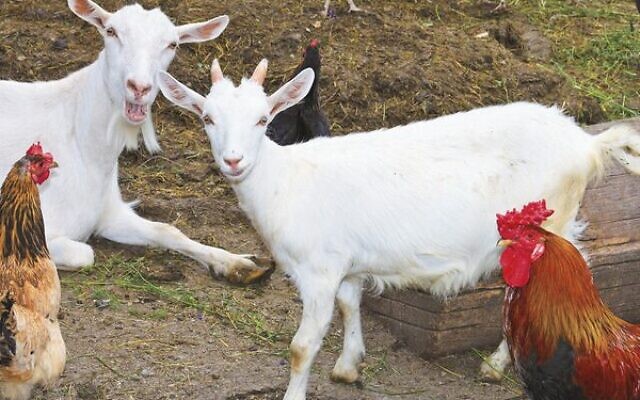Lost, found and returned: our duty to make a difference
"Each aspect of Jewish law includes not only pragmatic and practical components, but also a deeper significance and relevance to our daily lives."
Received an unexpected WhatsApp message from a friend a few months ago. When he contacted me, he told me he had recently been cleaning out the sheimos pile at a local synagogue (holy books and items to be buried are placed in the sheimos area and subsequently taken to be buried) and he found a sefer/religious book with my name on it.
The sefer was given to me by the Yeshivah College in appreciation of my work with informal Jewish education when I lived in Melbourne in 2002. Receiving this information was such a pleasant surprise, and I still don’t know how it ended up in that pile all those years ago. I am grateful to him for reaching out and am thrilled to have the book back in my library.
The little episode was rather interesting, and it immediately brought to my attention some of the details surrounding the mitzvah of returning a lost object. (There are quite a few intricacies and fascinating aspects surrounding this mitzvah, but they are beyond the scope of this article.)
According to our sages, the mitzvah of returning lost objects, known as Hashavat Aveidah, first and foremost applies to objects that are identifiable. The purpose of this is to allow the finder to return the item to its correct owner. Moreover, the mitzvah only applies if you find a lost object. It is not necessary to spend your whole day searching for lost objects, although you may see some people with metal detectors on the beach looking for treasure. It tells us, rather, that, when you see an object that appears to have been lost, you have the obligation to fulfil the mitzvah of returning the object to its rightful owner. The item cannot be left for the next person to do the good deed by shirking your responsibility.
Each aspect of Jewish law includes not only pragmatic and practical components, but also a deeper significance and relevance to our daily lives. In the same vein, the mitzvah of returning a lost object has a pertinent message that is relevant to many people in society today who wish to make a positive impact on our world.
Today, there are many fine and noble causes. Many charities, organisations and causes deserve our support. The Social Justice Calendar for 2022 shows a number of issues that require our attention each month. Many of these issues are vital and urgent.
The question is, however, do we actually want to get involved? Are we willing to make the effort and ‘return the lost object’ or are we going to walk by and leave it to the next person? Many social media posts or brilliantly-written articles have addressed various topics. In the world, new situations occur every so often, and people change their background on Facebook or create a new #hashtag on Instagram. However, these posts, articles or hashtags are often just that: posts. They are words on a screen or on paper.
We must be prepared to roll up our sleeves and do something practical about the area of concern that has come to our attention. Yes, just like when we return a lost object, we need to be diligent and do our ‘homework’ correctly. Ensure that there are ‘signs’ and that organisations or causes are legitimate and bona fide.
Additionally, it isn’t always easy to ‘pick up’ the item and be bothered to return it. Leaving it to others would be easier. You must return it … even if it takes work. The Torah doesn’t imply that it must only be returned if it feels good to do so and that it is very easy to do.
There is a pertinent story in Tractate Taanit that describes how chickens once wandered into the yard of Rabbi Chanina Ben Dosa. Rabbi Chanina became obligated to care for the chickens until their owner could be located. The chickens laid eggs which hatched into chicks and Rabbi Chanina’s property soon became overrun with chickens. He traded all the chickens for a few goats in order to consolidate. Rabbi Chanina multiplied the wealth of the original owner of the chickens by carefully following the mitzvah. By the time the man staked his claim, he owned an entire herd of goats. Even though it required a great deal of effort and inconvenience, Rabbi Chanina did not shirk his obligation.
Those who are willing to ‘lift an item and find its owner’ are the ones who will actually make a positive impact on the world.
In the new calendar year of 2022, this is a question we should all ask ourselves. What will we do to make a difference this year? Are we going to ‘return the lost object’ or just walk right by?
I’m confident we’ll all choose the former.
Rabbi Daniel Rabin is senior rabbi of Caulfield Hebrew Congregation.


comments